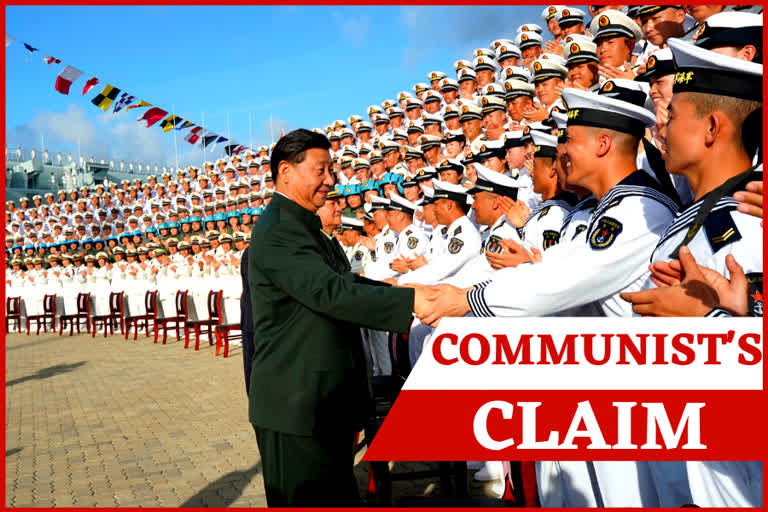New Delhi:Terming Friday's meeting between Indian and Chinese Defence Ministers as a positive step, the Chinese media said on Saturday that in case of a border war, India will have no chance of winning.
In an editorial on Saturday, Global Times, which is closely aligned with the ruling Chinese Communist Party, said, "We must remind the Indian side that China's national strength, including its military strength, is much stronger than India's. Although China and India are both great powers, when it comes to the ultimate competition of combat capability, the Indian side will lose. If a border war starts, India will have no chance of winning."
The editorial said, "We hope that the defence ministers' meeting will be a turning point for the two countries to come back to the consensus of the leaders' meeting. Each side will make its due effort to reduce tensions on the border."
It has supported the meeting of the Defence Ministers in Moscow on Friday.
However, it seemed to point to the fact that Indian policies on the border are being dictated by nationalism and public opinion.
"Indian public opinion is too deeply and widely involved in border issues. The Indian troop has been obviously kidnapped by domestic nationalism. Therefore, in addition to the joint control of the border dispute between China and India, India should also manage public opinion and nationalism, and make the best choice for its country and its people," the Global Times said.
Read also:Xi Jinping: Knitting darknet of loanee allies
"The problem now is that India has drawn an aggressive line on the border issue, misinterpreting China's desire to maintain peace and stability on the border as a weakness that can be exploited by threatening to wage a border war 'at any cost'.
"Some in New Delhi also believe that the US' suppression of China and support for India has increased India's strategic strength and provided it with additional capital for risky adventure along the China-India border. This miscalculation has led it to a series arrogant and reckless moves on the China-India border issue," it added.
Chinese State Councilor and Defence Minister Wei Fenghe and Indian Defence Minister Rajnath Singh met on the sidelines of the Shanghai Cooperation Organization (SCO) meeting in Moscow on Friday.
This was the highest-level military meeting between the two countries since tensions flared along the borders in recent months. The two armies are currently confronting each other on the south bank of Pangong Tso Lake and Reqin mountain pass in eastern Ladakh. The situation on the ground is quite tense.
"The fact that the two defence ministers are sitting face-to-face is in itself a positive signal and provides the necessary atmosphere for the two countries to manage their border disputes and cool down the situation on the ground," Global Times said.
"Chinese State Councilor and Foreign Minister Wang Yi and Indian Minister of External Affairs Subrahmanyam Jaishankar will also plan to meet on September 10. The meeting between Wei and Singh laid an important foundation for the meeting between the two foreign ministers. The complex border issue between China and India cannot be resolved in one meeting, but the role of the two defence ministers will be crucial in cooling border frictions," the editorial said.
"China and India are both big powers that have the capacity to mobilise national forces to support a military conflict in the border areas, but at this moment both sides need to calm down and clarify two major issues," it added.
Flagging the first issue, it said that China and India have not yet demarcated their borders and the Line of Actual Control (LAC) shouldn't be subject to constant change and different interpretations.
"The LAC of November 7, 1959, should be the base for both sides," it said.
"If both sides want to create a new LAC on their own, and the will of the two major powers were to collide, the result would be disastrous. If both countries use their national power to support this collision indefinitely, it will lead to war, and the scale of the war may not be controlled near the LAC, resulting in a tragic loss of both countries' power, including the lives of their soldiers.
"And given the size of both countries' national power and the current international climate, it is almost impossible to change the status quo on their borders to a large degree. In the end, the two countries will have to return to the general state of the existing LAC. So what are the two sides fighting for?" Global Times said.
The China-India boundary issue, which had been dormant for decades, has become "an active volcano" again in recent years, and it should not be. Before delimiting the border, it should be a common goal for both the countries to manage the border issue by letting the disputes become "dormant" between the two sides again, Global Times said.
IANS
